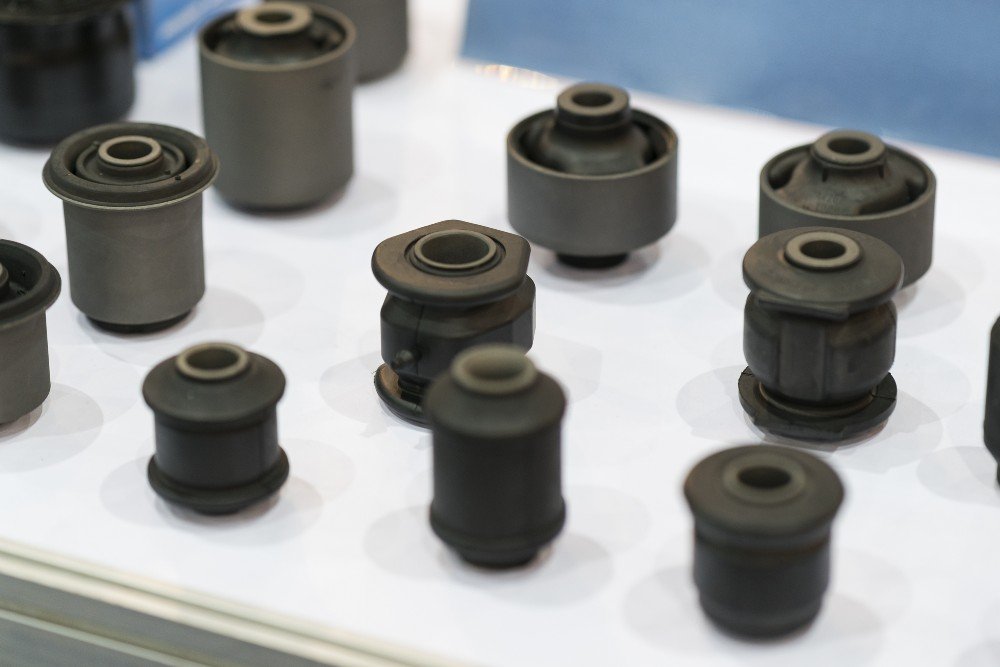Engineering isn’t easy. You’re trying to save money, reduce energy use, cut down on time, and still make the best product possible—all at the same time. That is no simple feat—to accomplish these things, you’ll need the best tools and materials for the job. That’s where polyurethane comes in. Metal, plastic, and rubber have a hard time competing with polyurethane’s performance in industrial settings.
With both a high tear and heat tolerance, plus its plethora of customizable options, polyurethane is the answer to your (sometimes seemingly endless) engineering challenges.
No matter your industry—whether you’re in manufacturing, oil and gas, construction, automotive, energy, or chemical plants—you can utilize this versatile substance to keep your processes and equipment running smoothly day in and day out. Let’s explore the benefits of polyurethane, from cost savings to versatility.
Benefits of Polyurethane
Polyurethane is often overlooked by the typical consumer. They may not realize it’s in many of the things they touch and use in their everyday lives. People who don’t know better may confuse it with rubber or plastic, but those have been phased out for certain uses as manufacturers realized what makes polyurethane so unique and indispensable.
When compared to its popular counterparts, polyurethane surpasses them with the advantages it provides. One of the biggest perks is that polyurethane can be customized to any specs you require. Need a high abrasion tolerance? No problem. Need your bright-colored parts to easily identify hazards? Done.
The reason polyurethane is so beneficial and so easily outperforms its competitors is due to qualities like strength, abrasion resistance, load-bearing capacity, water and chemical resistance, and customization.
Areas That Polyurethane Wins in Industrial Applications
Did you know: polyurethane even helps business people in aerospace, military, and fitness excel. The robust formulations of polyurethane have been customized over recent years to suit nearly every unique, demanding condition that comes its way in countless sectors.
Time to dive into which areas benefit most from this ideal material.
Wheels and Rollers
Polyurethane is beneficial in wheels for industrial applications because it can handle heavy loads without breaking and rub against other materials without deteriorating. It’s also water-resistant, chemical-resistant, and oil-resistant. Polyurethane wheels give a contemporary look, and they’re easy to clean. They’re well-suited for some of the harshest environments since they aren’t affected by salt, brine, grease, blood, oils, and many more common solvents lesser materials can’t handle.
Bushings 
In this application, polyurethane is used to reduce friction between two parts—a frequent need in industrial settings. When compared to metal or plastic—which are typically used for this part—polyurethane has a better compression set, and again, high abrasion resistance and impressive tear strength.
Motor Mounts
Also called “engine mounts,” these are designed to secure your vehicle’s engine and transmission to the subframe. This makes them critical components. They’re built to absorb vibration and shock to ensure the driver is unable to feel any movement of the motor.
Since polyurethane can handle extreme temperatures, oils, coolants, grease, and abrasives, motor mounts made of polyurethane will help extend the life of your machinery longer than materials like rubber. Polyurethane is also better than metal in this instance because of its noise reduction, high tear, and great heat resistance.
Dunnage
Polyurethane dunnage can be customized as a soft material to help transport breakable items. Picture the egg-shaped foam found in mattress toppers. It’s especially useful in the industrial world, because it can be used to successfully ship fragile parts and machinery without scratching or damaging them.
That way, manufacturers and shippers alike can rest easy knowing the product is safe throughout its journey. Even better, it can be customized to the exact specs you need to transport the item in snug packaging.
How to Get the Polyurethane Parts You Need
The applications for polyurethane are virtually endless—it’s no wonder so many different industries are opting to start using it over other substances. This could be the answer to all kinds of manufacturing issues that may crop up for you and your team.
Switching to polyurethane could save money, time, effort, and frustration for you and your employees. On top of that, there are indirect benefits to improving your equipment: higher morale, increased customer satisfaction, a bulletproof reputation, and more.
When you streamline your processes and cut out waste, you make a profit while keeping all of your stakeholders happy. This is where modern manufacturing is headed, and the use of this technology doesn’t appear to be slowing down anytime soon—it can only be improved from here.
In order to get what you need for the job, make sure you find a professional polyurethane manufacturer to work with. Now that you have a sense of why polyurethane is the superior choice for your materials needs, be sure to check out this important resource before choosing which business partner to partner with. Here are seven things to ask a potential manufacturer before working with them to know they’ll help you reach your goals.

